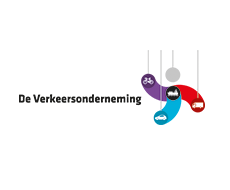
De verkeersonderneming
As logistic broker focussed on the chemical supply chain I am working on a project (commissioned by evofenedex) for De Verkeersonderneming. This involves contacting companies to discuss the possibilities for contributing in close consultation to the objectives set for the region of Rotterdam. De Verkeersonderneming is a public-private partnership between the Municipality of Rotterdam, The Rotterdam-The Hague metropolitan area, the Ministry of Infrastructure and Water Management, Rijkswaterstaat and the Port of Rotterdam Authority.
There are five main reasons for this partnership:
- A joint approach to accessibility issues
- Strengthening and optimising infrastructure and its use in and around Rotterdam and reducing traffic congestion by means of targeted influence on demand
- Developing and executing innovative solutions for accessibility issues: solutions that the partners can’t develop and execute by themselves
- Collaboration: public-public, public-private, private-private and public-private-people. New solutions preferably end up in the market (private) or with a road authority (public)
- Contributing to sustainable changes in behaviour
The Advisory Board, consisting of representatives of the business community in Rotterdam and municipalities in the region of Rotterdam, provides advice, when requested and on its own initiative, about the contents and the execution of the programme.
Consulting partners:
VNO-NCW Rotterdam
Deltalinqs
Evofenedex
TLN
MKB Rotterdam
RET
The Province of Zuid-Holland
The Municipality of Nissewaard
The Municipality of Krimpen aan den IJssel
The Police
Optimising Use programme
In the programme Beter Benutten [Optimising Use] Rotterdam, the traveller is the focus point, whether this involves a resident, an employee, an employer or an entrepreneur. As “mobility customer” the traveller gets to choose between several mobility services, so that he can avoid rush hour in the way that suits him best. We see mobility as a product that is available on a Marketplace in different forms.
- The traveller, employee or employer can choose between the mobility options from several service providers on the Mobility Marketplace.
- Entrepreneurs that want to improve their logistics and avoid rush hours can use the Logistics Marketplace.
In November 2015, De Verkeersonderneming started market research, during which commercial parties were asked to come up with infrastructure solutions for bottlenecks in the region of Rotterdam. The result of this research shows that there are opportunities for an Infrastructure Marketplace, in which the government and commercial parties build and invest together: for every private euro invested the government will add a public euro.
The Optimising Use programme of the Ministry of Infrastructure and Water Management revolves around the key terms accessibility, quality of life and economy. The accessibility of the economic centres in and around the cities is crucial to the economy. A better traffic flow improves the quality of life in residential areas. National and regional government and the commercial sector have a joint responsibility for this. By combining forces they work on structural improvements to the accessibility, linked to other values, such as an attractive business climate, sustainability or good employment practices. In the region of Rotterdam, the Optimising Use programme is executed by De Verkeersonderneming.
The Optimising Use Rotterdam programme has four focus areas:
Travel behaviour: intervening pre-trip in the traveller’s transport choice, the time of travel and/or the location from which or to which travel takes place;
Driving behaviour: intervening on-trip in the route choice and/or driving behaviour of motorists;
Network strengthening: improving networks (bicycle, car, public transport) and their connections, with the aim of facilitating different travel and driving behaviour;
Logistics: improving the efficiency of logistic chains.
In the Accessibility Statement for the Optimising Use programme it was determined that the region of Rotterdam will realise 7000 instances of peak avoidance. To ensure that this target is met, De Verkeersonderneming has established a programme that facilitates a maximum of 12,500 instances of peak avoidance.
Source: www.verkeersonderneming.nl Jan 2018
